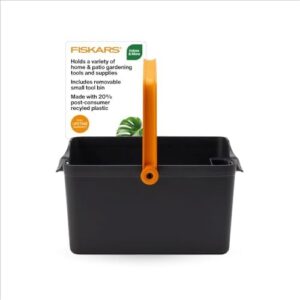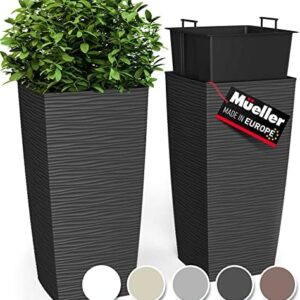Are you tired of struggling to grow a successful garden? Have you been battling poor soil quality, pests, and other challenges that prevent your plants from thriving? If so, maybe it’s time to give raised beds a try. Raised beds are a simple yet powerful gardening technique that can transform your gardening experience and help you cultivate a bountiful and flourishing garden.
So, what exactly are raised beds and why are they so beneficial? Raised beds are essentially garden beds that are elevated above the ground. They can be constructed from a variety of materials, such as wood, stone, or metal, and come in all shapes and sizes. The key advantage of raised beds is that they provide better soil conditions for your plants to grow. By filling the raised bed with high-quality soil, you can ensure that your plants have optimal nutrients, drainage, and aeration.
One of the biggest challenges that gardeners face is poor soil quality. Many gardeners struggle with compacted, clayey, or sandy soil that doesn’t provide the ideal environment for plants to thrive. Raised beds allow you to start fresh with a rich, well-draining soil mix that is perfectly suited for your plants. You can easily amend the soil in your raised beds with compost, manure, and other organic matter to create a nutritious and fertile growing environment.
Another major benefit of raised beds is that they provide better drainage for your plants. One of the most common problems in traditional garden beds is waterlogging, which can lead to root rot and other issues. Raised beds, on the other hand, allow excess water to drain more freely, preventing waterlogged soil and promoting healthier roots. This is especially important for plants that are sensitive to overwatering, such as tomatoes, peppers, and herbs.
In addition to improved soil quality and drainage, raised beds also offer better aeration for your plants. The elevated design of raised beds allows air to circulate more effectively around the roots of your plants, preventing soil compaction and promoting healthier root growth. This increased aeration can help your plants develop stronger root systems, which in turn leads to better nutrient uptake and overall plant health.
But the benefits of raised beds don’t stop there. Raised beds also provide a number of practical advantages that can make gardening easier and more enjoyable. For starters, the raised design of the beds makes them more accessible, especially for those with mobility issues or back problems. You can tend to your plants without having to bend over or kneel on the ground, making gardening a more comfortable and enjoyable experience.
Raised beds also help to reduce the amount of weeding you have to do. By confining your plants to a defined area, raised beds make it easier to control weeds and prevent them from taking over your garden. You can mulch the surface of your raised beds to further suppress weeds and conserve moisture, saving you time and energy in the long run.
Furthermore, raised beds allow you to better manage pests and diseases in your garden. The elevated design of raised beds makes it harder for pests such as slugs, snails, and rodents to access your plants, reducing the risk of damage and infestation. You can also easily cover your raised beds with netting or row covers to protect your plants from common pests and diseases.
So, how can you get started with raised beds in your own garden? The good news is that raised beds are easy to build and customize to suit your needs. You can purchase pre-made raised bed kits or build your own using materials such as lumber, bricks, or even old pallets. Just make sure to choose a location for your raised beds that receives adequate sunlight and is easily accessible for watering and maintenance.
When filling your raised beds with soil, be sure to use a high-quality mix that is rich in organic matter and nutrients. You can create your own soil mix by combining equal parts of garden soil, compost, and peat moss, or you can purchase pre-mixed soil from your local garden center. Remember to water your raised beds regularly, especially during hot and dry weather, to ensure that your plants stay healthy and hydrated.
In conclusion, raised beds are a game-changer for any gardener looking to cultivate a bountiful and flourishing garden. By providing better soil quality, drainage, and aeration, raised beds create the ideal growing environment for your plants to thrive. Not only do raised beds promote healthier root systems and better plant growth, but they also make gardening more accessible, enjoyable, and productive. So why not give raised beds a try in your own garden and see the amazing results for yourself? Your plants will thank you for it!






